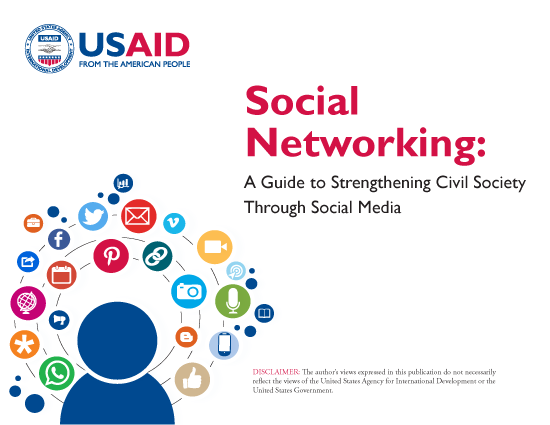- What We Do
- Agriculture and Food Security
- Democracy, Human Rights and Governance
- Democracy, Human Rights and Governance Strategy
- Supporting Free and Fair Elections
- Supporting Vibrant Civil Society & Independent Media
- Protecting Human Rights
- Promoting Accountability & Transparency
- Importance of Democracy, Human Rights, & Governance to Development
- Countering Trafficking in Persons
- Economic Growth and Trade
- Education
- Ending Extreme Poverty
- Environment and Global Climate Change
- Gender Equality and Women's Empowerment
- Global Health
- Water and Sanitation
- Working in Crises and Conflict
- U.S. Global Development Lab
A democratic political culture requires a vibrant civil-society sector and an independent media to ensure that citizens are well informed about the actions and performance of government institutions and officials, and that citizens have the means to freely influence public policies.
- In the last several years, more than 90 governments have sought to pass restrictive laws and regulations, hampering the ability of civil society organizations to register, operate freely, or receive foreign funding.
- In 2017, only 13 percent of the world’s inhabitants lived in countries with a completely free press.
- In 2016, 67 percent of all Internet users live in countries where criticism of the government, military, or ruling family are subject to censorship.
In light of this disturbing trend toward closing civic space globally, USAID’s approach includes support for legal and regulatory frameworks that provide an enabling environment for civil-society organizations and independent media, including social media, to develop free from governmental constraints on the fundamental freedoms of association, assembly and expression.
A vibrant civil society sector and independent media can help countries recover from disasters and transition from conflict – enabling democratic political transitions that empower all citizens, including youth and vulnerable populations. To support civil society, USAID works with its Missions, implementing partners, other international organizations and host governments to design targeted activities that effectively support local, grassroots civil society organizations and independent media.
Because civic action and engagement with government can result in political reform, USAID emphasizes support for civil society organizations whose advocacy efforts give voice to citizens and increase their inclusion in the political process.
These organizations may include human rights and pro-democracy groups, labor unions, professional associations, religious institutions, think tanks, business associations, and informal groups such as student and youth movements.
In fiscal year 2016, USAID:
- Strengthened the legal environment for civil society in over 20 countries in Asia, Eastern Europe, North Africa, and Sub-Saharan Africa.
- Worked with over 500 local civil society organizations globally to launch six regional civil society innovation hubs to combat growing repression, expand civic space, and strengthen civil society.
- Supported more than 500 worker organizations, including trade unions and CSOs, to advance worker rights and access to justice in 27 countries.
- Advanced Internet freedom in 17 countries by providing civil society, independent media organizations, bloggers, and advocates with mentoring, tools, and techniques to bolster their information technology capacity and protect their security online.
USAID’s Civil Society Organization (CSO) Sustainability Index for Sub-Saharan Africa, Asia, the Middle East, and Europe & Eurasia reports on the strength and overall viability of the NGO sector in these regions' countries.








Comment
Make a general inquiry or suggest an improvement.